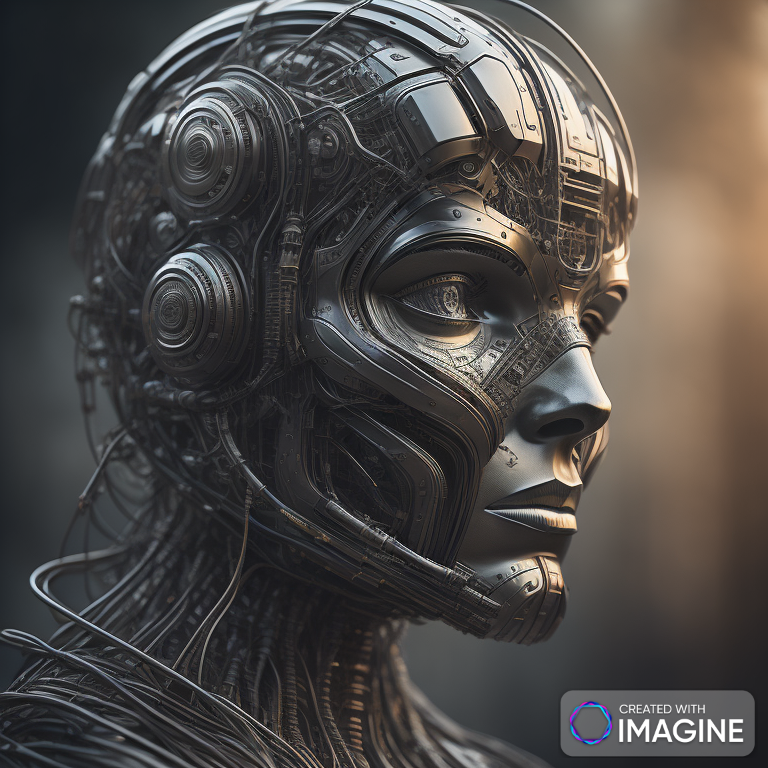Artificial Intelligence (AI) stands at the forefront of technological evolution, revolutionizing the way machines learn, adapt, and interact with their surroundings. At its core, AI is the study of Intelligent agents that receive percepts from the environment and perform actions based on this information. In this blog post, we’ll delve into the intricacies of this concept, exploring the fundamentals, applications, and the evolving landscape of Intelligent Agents AI.
1. Defining AI Agents: Unraveling the Basics
At the heart of AI lies the concept of agents – entities capable of perceiving their environment and taking actions to achieve specific goals. These agents operate within dynamic and often unpredictable settings, making their ability to adapt and learn crucial for success.
2. The Perception-Action Loop: How Agents Navigate the World
The foundation of AI is the Perception-Action Loop. Agents receive percepts or information from the environment, process it to understand their surroundings, and then execute actions based on this understanding. This continuous loop enables them to make informed decisions in real-time.
3. Types of AI Agents: From Simple to Complex
AI agents vary in complexity, ranging from simple rule-based systems to advanced machine learning models. Rule-based agents follow predefined rules, while learning agents evolve and improve their performance over time through experience and data.
4. Machine Learning in AI: Empowering Agents to Learn
Machine learning plays a pivotal role in AI, allowing agents to learn patterns and make decisions without explicit programming. Supervised learning, unsupervised learning, and reinforcement learning are key paradigms enabling agents to enhance their capabilities through data.
5. Applications of AI Agents: Transforming Industries
The deployment of AI agents has led to transformative applications across diverse industries. From autonomous vehicles and virtual personal assistants to healthcare diagnostics and fraud detection, AI agents are reshaping the way we live and work.
6. Challenges in AI Agent Development: Navigating the Complexities
Despite its advancements, AI faces challenges. The interpretability of AI decision-making, ethical considerations, and the potential for biased outcomes are areas that demand ongoing attention and research in the development of AI agents.
7. The Future of AI: Emerging Trends and Possibilities
As technology progresses, the future of AI holds exciting possibilities. Quantum computing, explainable AI, and AI in edge computing are emerging trends that promise to further elevate the capabilities of AI agents, making them more efficient and accessible.
8. Ethical Considerations: Guiding AI Development Responsibly
The ethical implications of AI development cannot be overstated. Ensuring fairness, transparency, and accountability in AI systems is imperative to prevent unintended consequences and foster public trust.
9. Impact on Society: Balancing Progress and Responsibility
AI’s societal impact is profound, influencing the job market, privacy concerns, and the very fabric of human-machine interaction. Striking a balance between technological progress and societal well-being is a critical aspect of AI’s integration into our lives.
10. Conclusion: Nurturing Intelligent Agents for a Better Tomorrow
AI as the study of agents navigating dynamic environments represents a remarkable journey into the realm of intelligent machines. As we continue to advance AI technology, it is essential to approach its development with responsibility, ensuring that these agents contribute positively to the betterment of society.
11. Reinforcement Learning: Agents and the Science of Rewards
In the realm of AI, reinforcement learning stands out as a powerful paradigm. Agents employing reinforcement learning algorithms learn by receiving feedback in the form of rewards or penalties based on their actions. This approach allows them to iteratively refine their strategies, contributing to more adaptive and intelligent behavior over time.
12. Natural Language Processing (NLP): Enabling Conversational Agents
Advancements in natural language processing have empowered AI agents to understand and respond to human language. Conversational agents, like chatbots and virtual assistants, leverage NLP to engage in meaningful interactions, providing assistance and information in a manner that simulates human conversation.
13. Explainable AI: Demystifying the Decision-Making Process
As AI systems become more complex, the need for explainability grows. Explainable AI focuses on making the decision-making process of AI agents understandable to humans. This transparency not only enhances trust but also aids in identifying and addressing potential biases in the algorithms.
14. Transfer Learning: Accelerating Agent Competence
Transfer learning is a technique where an AI agent trained for a specific task leverages its knowledge to excel in a related, but different, task. This accelerates the learning process and allows agents to apply their acquired skills across a range of scenarios, making them more versatile and efficient.
15. Edge AI: Bringing Intelligence to the Edge of Networks
Edge AI involves processing data locally on devices rather than relying solely on centralized cloud servers. This approach reduces latency and enhances real-time decision-making for AI agents. Edge AI is particularly crucial in applications like autonomous vehicles and IoT devices.
16. Human-AI Collaboration: Augmenting Human Capabilities
The synergy between humans and AI is a key aspect of the evolving landscape. AI agents, designed to complement human abilities, amplify productivity and creativity. From medical diagnosis support to aiding in complex decision-making, the collaboration between humans and AI holds immense potential.
17. Continuous Learning: Adapting to a Dynamic Environment
AI agents designed for continuous learning can adapt to evolving environments. This capability is especially valuable in scenarios where changes occur over time, allowing agents to stay relevant and effective without requiring frequent reprogramming or manual intervention.
18. Swarm Intelligence: Mimicking Nature for Collective Intelligence
Inspired by nature, swarm intelligence involves multiple AI agents working collaboratively to solve complex problems. This approach draws inspiration from the collective behavior of organisms like ants or bees, demonstrating the potential for distributed AI systems to achieve remarkable feats.
19. Cognitive Computing: Emulating Human Thought Processes
Cognitive computing in AI aims to emulate human thought processes. This involves pattern recognition, learning, and problem-solving. By integrating cognitive computing principles, AI agents can approach tasks with a more human-like understanding, enhancing their ability to interpret complex data and scenarios.
20. Quantum AI: Redefining Computational Boundaries
The intersection of quantum computing and AI holds promises of unprecedented computational capabilities. Quantum AI explores the use of quantum algorithms to enhance the efficiency and speed of AI computations. This marriage of quantum and artificial intelligence could potentially revolutionize the field.
21. Emotional Intelligence in AI: Enhancing Human Interaction
Advancements in emotional AI aim to imbue AI agents with emotional intelligence, enabling them to recognize and respond to human emotions. This facet of AI holds potential in applications like customer service, where understanding and appropriately responding to user emotions become crucial.
22. Regulatory Frameworks: Navigating Legal and Ethical Frontiers
The development and deployment of AI agents necessitate comprehensive regulatory frameworks. Addressing legal and ethical concerns, these frameworks guide responsible AI use, protect user privacy, and set standards for fairness and accountability in AI systems.
23. AI in Education: Personalized Learning and Skill Enhancement
In the education sector, AI agents facilitate personalized learning experiences. They analyze individual learning patterns, adapt content delivery, and provide targeted feedback, fostering a more effective and tailored educational journey for students.
24. AI in Environmental Conservation: Monitoring and Decision Support
AI agents contribute to environmental conservation efforts by analyzing vast datasets for climate monitoring, wildlife tracking, and habitat preservation. They aid in decision-making processes related to sustainable practices, resource management, and conservation initiatives.
25. Ethical Considerations in AI: Guarding Against Bias and Discrimination
The ethical dimensions of AI encompass addressing biases and preventing discrimination. Striving for fairness and equity, ethical AI development involves continuous scrutiny of algorithms, datasets, and decision-making processes to avoid perpetuating societal inequalities.
26. Public Awareness and Education: Fostering Understanding
Increasing public awareness about AI and its implications is crucial. Educational initiatives on the responsible use of AI, its capabilities, and its societal impact empower individuals to engage in informed discussions and advocate for ethical AI practices.
27. AI and Cybersecurity: Safeguarding Digital Ecosystems
AI plays a pivotal role in cybersecurity, fortifying defenses against evolving threats. Intelligent agents analyze patterns, detect anomalies, and autonomously respond to potential security breaches, fortifying digital infrastructures against cyberattacks.
28. Neuro-Inspired Computing: Mimicking Brain Functionality
Neuro-inspired computing in AI involves designing algorithms that mimic the structure and functioning of the human brain. This approach, often referred to as neuromorphic computing, holds potential for creating AI agents capable of more sophisticated and nuanced learning.
29. AI in Agriculture: Precision Farming and Yield Optimization
In agriculture, AI agents contribute to precision farming by analyzing data from sensors, satellites, and drones. They offer insights into optimal planting times, irrigation schedules, and pest control measures, leading to increased crop yields and sustainable farming practices.
30. Swarm Robotics: Coordinated Autonomous Systems
Swarm robotics extends the principles of swarm intelligence to a physical realm. Multiple robotic agents collaborate without centralized control, mimicking the collective behavior seen in nature. Applications range from search and rescue missions to environmental monitoring.
31. Bias Mitigation Strategies: Ensuring Fairness in AI Decisions
Addressing bias in AI algorithms is paramount. Implementing strategies like diverse dataset curation, algorithmic transparency, and ongoing bias audits helps mitigate discriminatory outcomes, fostering fairness and equity in AI applications.
32. AI in Creativity: From Art to Music Composition
AI’s foray into the realm of creativity includes generating art, composing music, and even crafting literature. AI agents, trained on vast datasets, showcase the potential for collaboration between human creativity and machine-generated expressions.
33. AI in Drug Discovery: Accelerating Pharmaceutical Innovation
AI accelerates drug discovery processes by analyzing vast datasets to identify potential drug candidates. This application expedites research, reduces costs, and holds the promise of addressing medical challenges more efficiently.
34. Personalized Healthcare with AI: Tailoring Medical Interventions
AI agents analyze individual health data to provide personalized medical insights and treatment plans. From diagnostics to treatment recommendations, AI in healthcare enhances precision and improves patient outcomes.
35. Edge AI in Robotics: Real-Time Decision-Making for Robots
In robotics, Edge AI enables robots to make real-time decisions by processing data locally. This approach enhances the agility and responsiveness of robots, making them more adaptable to dynamic environments.
36. AI Ethics Committees: Guiding Ethical AI Development
Establishing AI ethics committees is a proactive measure to ensure responsible AI development. These committees, comprised of interdisciplinary experts, evaluate the ethical implications of AI projects and guide developers in ethical decision-making.
37. AI in Financial Services: Fraud Detection and Portfolio Management
AI revolutionizes financial services with applications in fraud detection, risk assessment, and portfolio management. Intelligent algorithms analyze market trends, detect anomalies, and assist in making data-driven financial decisions.
38. AI in Space Exploration: Analyzing Cosmic Data
In space exploration, AI agents analyze vast datasets from telescopes, satellites, and rovers. They assist scientists in interpreting cosmic phenomena, identifying celestial objects, and optimizing mission planning for space exploration endeavors.
39. AI and Augmented Reality: Enhancing Immersive Experiences
AI integration with augmented reality (AR) enhances immersive experiences. AI algorithms interpret real-world data, enabling AR applications to overlay relevant information, from navigation cues to interactive educational content.
40. AI and Accessibility: Empowering Diverse User Experiences
AI contributes to creating accessible technologies for individuals with disabilities. Voice recognition, gesture controls, and AI-driven assistive devices enhance inclusivity, fostering a technology landscape that caters to diverse user needs.
41. Quantum Machine Learning: Unleashing Quantum Computing Power
Quantum machine learning explores the synergy between quantum computing and AI. Leveraging the unique capabilities of quantum systems, this field holds the potential to solve complex problems exponentially faster than classical computing.
42. Humanoid Robotics: AI Agents in Human-Like Bodies
Advancements in humanoid robotics aim to create AI agents in human-like bodies. These robots can perform tasks in environments designed for humans, opening avenues for applications in healthcare, service industries, and even disaster response.
43. AI in Aviation: Enhancing Safety and Efficiency
AI applications in aviation extend to optimizing air traffic control, predictive maintenance, and pilot training. AI agents analyze data to enhance safety, reduce operational costs, and improve overall efficiency in the aviation industry.
44. Quantum AI Cryptography: Securing Communications
The intersection of quantum computing and AI extends to cryptography. Quantum AI cryptography explores the development of secure communication protocols, protecting sensitive information from potential threats posed by quantum computers.
45. AI-Generated Content Moderation: Ensuring Online Safety
AI agents are employed for content moderation on online platforms. These systems analyze user-generated content, identifying and filtering out inappropriate material, contributing to creating safer online spaces.
46. AI in Logistics: Streamlining Supply Chain Operations
In logistics, AI optimizes supply chain operations. Intelligent agents forecast demand, optimize inventory management, and enhance logistics planning, leading to improved efficiency and reduced costs.
47. Human-AI Trust: Building Confidence in Autonomous Systems
Fostering trust in autonomous systems is crucial. Implementing transparency measures, explainable AI, and user education contribute to building confidence in human-AI interactions, particularly in applications like autonomous vehicles.
48. AI in Social Robotics: Companion Robots and Emotional Interaction
AI-driven social robots serve as companions, particularly for the elderly or individuals facing social isolation. These robots engage in emotional interactions, offering companionship and support.
49. Sustainable AI: Reducing Environmental Impact
As AI systems grow in scale, the environmental impact becomes a consideration. Sustainable AI focuses on developing energy-efficient algorithms and optimizing hardware to minimize the carbon footprint of AI technologies.
50. AI Governance: Shaping Policies for Responsible AI Use
The establishment of AI governance frameworks involves crafting policies that guide the ethical and responsible deployment of AI. These frameworks address legal, societal, and privacy considerations, ensuring that AI development aligns with broader ethical standards.
Embark on this exploration of AI, where  decode the language of the environment, make informed decisions, and shape a future where artificial intelligence augments human capabilities for the benefit of all.
decode the language of the environment, make informed decisions, and shape a future where artificial intelligence augments human capabilities for the benefit of all.







